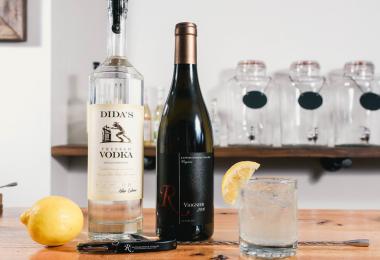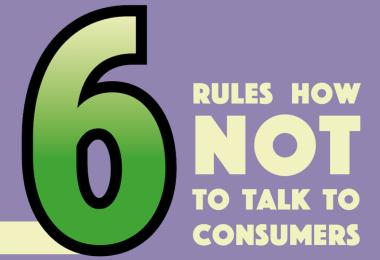Todd White’s forceful personality comes through the Zoom screen. In some other time and place, someone so leaned, tanned, and energetic might have been an explorer, driven to carve out new territory, or a preacher lighting up a hall. But, instead, his focus is on how to live a better life – even if California’s lockdown has derailed that.
“I haven’t been to the gym in two months and I’ve not been quite as disciplined with my eating habits, and I’ve been drinking a lot of wine,” he says. “I’m starting a five-day water fast.”
White is the founder of Dry Farm Wines, an online store selling natural wines. And not just any natural wines. Dry Farm’s landing page promises that as well as being natural and free of additives, the wines are “lab tested for purity; sugar free; lower alcohol”. In place of ratings from critics, the site has a gallery of “Performance Leaders Who Love Our Wine”, including health and fitness gurus.
This is no ordinary wine site. It’s an expression of White’s mission to turn wine on its head.
Looking for better wine
White is into biohacking, which is wellness for the Silicon Valley set. Biohacking aims to optimise the body through diet, exercise, and supplements; some biohackers use unproven treatments such as cryotherapy. “Biohacking is the art and science of how we alter our behaviour to positively impact or influence our biological or neurological outcome,” says White. He speaks carefully and precisely. “Now why I say ‘art and science’ is because there is no proven science for many biohacks.”
White says he’s had a lifelong interest in wine, beginning with the wine served at his family’s dinner table. He says Dry Farm Wines didn’t start out as a business, but as “me trying to find a healthier way to drink. I had begun experimenting with a ketogenic diet which is a very specific therapeutic diet, about six years ago. A common side effect is that people don’t process alcohol as well.”
Disappointed, he approached a wine business friend and said he was thinking about making a low alcohol wine. “He said, ‘have you tried any of the lower alcohol wines that are being made in Europe?’ I said no.”
And that’s how White discovered the natural wine revolution. But there were only two natural wine retailers in San Francisco, and many of the wines were funky. “I don’t like those wines, though they’re celebrated in parts of the natural wine community.”
White began sending some of the wines off to be lab tested. “At this point, I’m starting to think of it as a business, because I’m introducing these wines to my friends, who are biohackers and athletes and performers.”
In 2015, White became the official wine supplier to an annual biohacking conference, then called the Bulletproof Conference, held by guru Dave Asprey of Bulletproof Coffee. White subsequently appeared on two podcasts, one of which was Asprey’s podcast Bullet Proof Radio. “I had almost zero sales, and then the next day it was over $100,000, just from these podcasts.”
One of the promises White makes his health-conscious customers is that every wine is low alcohol (under 12.5 percent ABV) and lab tested; he uses ETS Laboratories and myEnologist. “The primary things that we’ve found that are of interest to our customers are mislabelled alcohol – higher alcohol – and sugar. Our standard is less than one gram per litre.” White says they also tested the top 20 bestselling wines and found high sulphur and sugar levels.
White says he’s been self-employed since he was 17, and has started about ten companies. He was even involved in a small wine project back in 2005, though he says it wasn’t successful.
“I’ve been in the financial services industry, the insurance business, and real estate,” he says. “I’ve also been in senior health care.”
The latter, he says, was so disastrous personally and financially, that it prompted him to create 18 business rules for himself. One was that whatever he was going to do, it had to be something “I love so much, I’d be willing to do it for free”. Another: never employ sales people. “The problem with sales people is they’re generally manipulative. I’ve had a long career of working with sales people. They’re always selling you, they’re selling the customer and they’re selling themselves. They’re a very difficult group to work with.” Yet another rule was not to “carry accounts receivable again. If you get into the retail wine business, you’re carrying receivables, because they can’t pay you.” That puts you “in the collections business”.
Selling wine direct to consumers was a business that fit all the rules.
The way it works
White started with tiny volumes. “Now we move containers, but in the beginning, we had 50 club members. Then we had a 100, then a 1,000. We bought exclusively from distributors,” of which there are about 80 in the US that deal with natural wines. “Two years ago, we launched our own direct import company,” which now represents about 70% of the wine inventory. Today, White has about 800 wineries on the books; he says he talked to the distributors he worked with and reassured them he would never poach growers. According to the San Francisco Chronicle, White now has 100,000 subscribers and sells about 3m bottles a year. “The reason a grower will want to do business with us versus an importer is because of payment terms. Our payment terms are extraordinary.” White says his company pays 50% by international transfer when the wine is picked up, and then the other 50% when it reaches the warehouse. “We pay farmers more, and we pay them faster.”
Surprisingly, for someone who is generating wealth for wine growers, White attracts plenty of criticism. Partly it’s because natural wine is fundamentally an anti-corporate movement, so building a big natural wine business is paradoxical. But it’s also because he runs ads on Facebook saying things like “Minimise hangovers & brain fog with Natural Wine”, which is very close to making a health claim. “I don’t know a single person who’s in the natural wine business that won’t make that same statement,” says White, adding he’s also on record as saying “alcohol is a very dangerous neurotoxin and ruins millions of lives a year,” which is why he champions lower alcohol wines.
White clearly finds conventional winemaking an outrage, from irrigation to additives. “We’re starting a very assertive campaign across the United States on getting labelling and transparency on wine bottles,” he says. There are two particular chemicals that concern him, the first of which is the yeast nutrient diammonium phosphate. The other is dimethyl dicarbonate, or Velcorin. “It’s very toxic,” he says. “When it’s applied, it has to be applied in the winery by contractors wearing hazmat suits.”
Velcorin is an antimicrobial agent that reduces the chance of Brett contamination and its makers, Scott Laboratories, claim it’s non-persistent; when asked what traces his labs had found, White bats the question away. “I don’t want to drink it in any amount.”
Preaching the message
To say that White has strong views is an understatement. Last year he gave a talk called “The Dirty Secrets of the Wine Industry” to the Florida Institute for Human & Machine Cognition, now on YouTube. “I’m going to share some secrets with you about the wine industry,” he begins. “There’s been massive corporate consolidation around greed and money,” with 52% of all wine in the US made by just three giant companies.
His audience gasps as he shows them pictures of tank farms. Next, he flashes a picture of a small, cosy cellar in Umbria. “This is what a real wine cellar looks like,” he says.
Then comes the revelation: “There is a big, deep, dark collusion between the wine industry and politicians, and the wine industry has spent tens of millions of dollars to keep you uninformed,” he says. The audience is gripped. “Here’s how they do it.”
First, Big Wine lobbies to keep ingredient labels off wines. Next, White points out that alcohol levels have risen in the last 30 years. “Wine companies like alcohol,” he says. “Turns out that wine is addictive. The more you drink the more you’re likely to drink and the more wine they sell.” Big Wine also uses genetically modified yeasts, partly to make wines taste like something they’re not, but mostly because GMO yeasts can withstand that addictive high alcohol. “And the thing is, the wine industry has been able to keep all of this secret.”
It’s a Manichean vision of wine; good versus evil, and one with no room for chateaux, négociants, co-ops, or the New World (with a few South African exceptions). And after sin comes redemption – the growers whose wines White sells, of whom there “are less than 1,500” in the world.
Of course, just because White likes small, family-owned wineries doesn’t mean he’s wrong about Big Wine, so Meininger’s checked his claims.
“WineAmerica does not have a set position on ingredient labelling,” Michael Kaiser, the Vice President of Government Affairs of WineAmerica, the industry’s lobby group in Washington responded. “We have not actively lobbied against ingredient labelling in the 14 years I have worked for the organization.”
Ignacio Sánchez Recarte, secretary general of the Comité Européen des Entreprises Vins (CEEV), which represents the EU’s wine sector, says their position is that asking small wineries to update labels every vintage would impose an economic burden. However, the CEEV recognises that consumers want ingredients transparency, and legislation is underway. He expects that by the end of 2022, European wine bottles will have ingredients list – which will push other producing countries to follow suit.
Of course it’s possible that Big Wine executives sit around in boardrooms plotting ways to inflict higher alcohols on consumers – who knows? – but it’s also possible the higher alcohols are the result of Parkerisation and climate change.
Then there’s the GMO claim. While GMO yeasts are illegal in the EU, two are theoretically legal in North America. The man who developed them, the now-retired Professor Hennie van Vuuren, of the University of British Columbia Wine Research Centre, told Meininger’s he engineered one yeast to “prevent the production of ethyl carbamate, a carcinogen present in wines; this yeast does not contain any foreign genes.” He developed the other, the ML01 yeast, to prevent the production of biogenic amines during fermentation, because “I am allergic to bioamines in wines and I love wine.” Neither yeast is available on the market now.
White is correct, however, that many popular wines on the US market have high residual sugar, some of which is supplied by grape concentrates like Mega Purple. Likewise, companies like Treasury Wine Estate have been open about creating wines based on what focus groups tell them – practices that appal many in the wine trade.
Many would also agree with White that irrigation fundamentally alters grape flavours. And it’s absolutely true that a lot of pesticides – both commercial and copper sulphate – are applied to grapes. What is not true is that conventional wines are therefore full of residues. One of the world’s biggest wine buyers is the Liquor Control Board of Ontario. It has its own laboratory and tests every wine that enters the province for, among other things, heavy metals and pesticides. “From the 22,600 wines tested in 2019-2020,” a press officer wrote to Meininger’s, only 20 exceeded the LCBO’s limits.
To test White’s wines, Meininger’s sent a three-bottle case to natural wine expert Alice Feiring. Included was the consistently lauded Claus Preisinger Blaufränkisch from Austria. Ironically, Feiring said she believed one of the other wines had a Brettanomyces-like character; Esther Mobley, writing in the San Francisco Chronicle, noted that one of the wines she tried also “tasted strongly” of Brett.
Someone who spins conspiracy theories about wine is clearly no friend to the industry. But White is probably the best enemy the wine world ever had, because he’s outraged and energetic enough to push it to do the things it should already have done, from paying people properly to labelling ingredients. It’s also long past time the wine industry explained that wine is, just like biohacking, not just art but also science.
Felicity Carter
Correction: The original article said that diammonium phosphate occurred naturally in grapes, which it doesn't. We also called Velcorin an antibacterial, not an antimicrobial agent.








